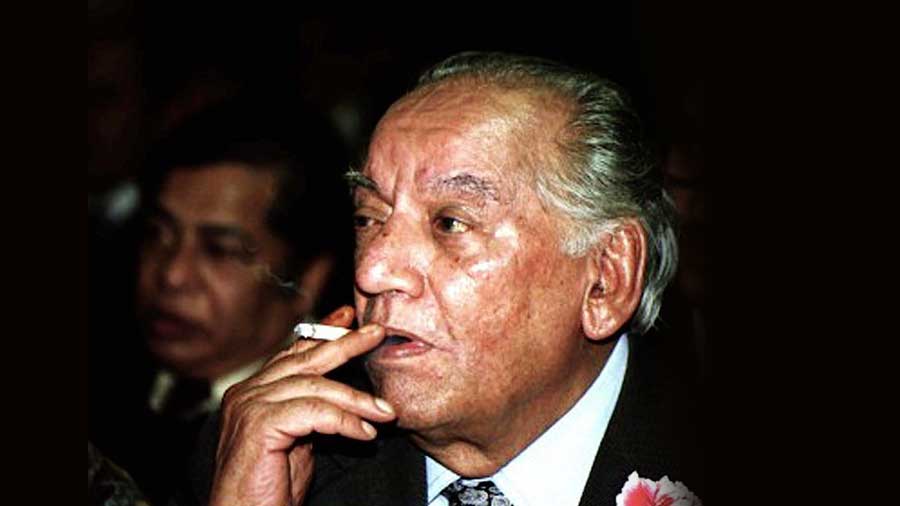Faiz Ahmed Faiz would have been 111 on February 13.
When it comes to the world of Urdu kalaam, it does not matter whether poet Faiz was ‘the other’ (Pakistani); someone at Jashn e Rekhta once heartwarmingly confessed: “He was one of us.”
So what makes Faiz “one of us”?
It must be something about the beauty of a shared language that blurs boundaries (just as Pakistanis appropriate Ghalib at will without it making a difference that he is buried on our side).
It must be something about the niche — exile — that Faiz came to be identified with, resulting in an emotional stirring on geographic yearning.
It must be something about his ability to raise a clenched fist against the hukoomat of the day, which we identify whether at the office space, hostile neighbourhood or insensitive mamlakat (kingdom).
It must be something about the humility in him — his ‘Aapki yaad aati rahi hai’ tribute to Makhdoom touched a nerve that a shaayar from another country was willing to pay homage to one of our own when in the latter’s city.
It must be something about the Communist (hence humanist) in him that he was willing to replace sharaab/gulaab to write about inquilaab.
It must be something about the cocktail of anger, rebellion and tenderness — ‘Raat yuun dil me teri khoyi hui yaad aayi, jaisey veeraaney me chupke se bahaar aa jaaye’ on the one hand and ‘Nisaar main teri galiyo ke ai watan ke jahaa chali hai rasm ke koi na sar utha ke chale’ on the other.
It must be something about his voice finding other voices — Zia Mohiuddin’s baritone rendition that was transformed into a commercial cassette (‘Faiz saheb ki mohabbat me’ he called it); Iqbal Bano’s ‘Hum dekhenge, laazim hai ke hum bhi dekhenge’ (in front of 75,000 at Lahore’s Gaddafi Stadium in the face of General Zia’s militant sternness), Dr Radhika Chopra at Jashn-e-Rekhta (‘Tum aaye ho na shab e intezaar guzri hai’ forever spooled in the mind), Madam Noorjehan’s ‘Mujhse pehli si mohabbat mere mehboob na maang’ and Nayyara Noor’s whatever you care to hear.
It must be something about the magic of some of the lines that have become a part of one-self — that memorable jibe at the Maker with ‘Ek fursat-e-gunaah mili woh bhi chaar din, dekhe humne haunsle parvardigaar ke’; that provocative ‘Laao sulgaao koi josh-e-gazab ka angaar!’; that stirring ‘Maqaam Faiz raah me koi jachaa hi nahi. Jo kuay yaar se nikle to suey daar chale!’
It must be something about certain words that will just not go away: ‘Na rahaa junoon-e rukhe wafaa. Yeh rasan yeh daar karoge kya. Jinhe jurm-e-ishq pe naaz tha woh gunahgaar chale gaye…’ (The words that just refuse to go away: ‘Jinhe jurme-ishq pe naaz tha…’).
Faiz died. Faiz lives.
